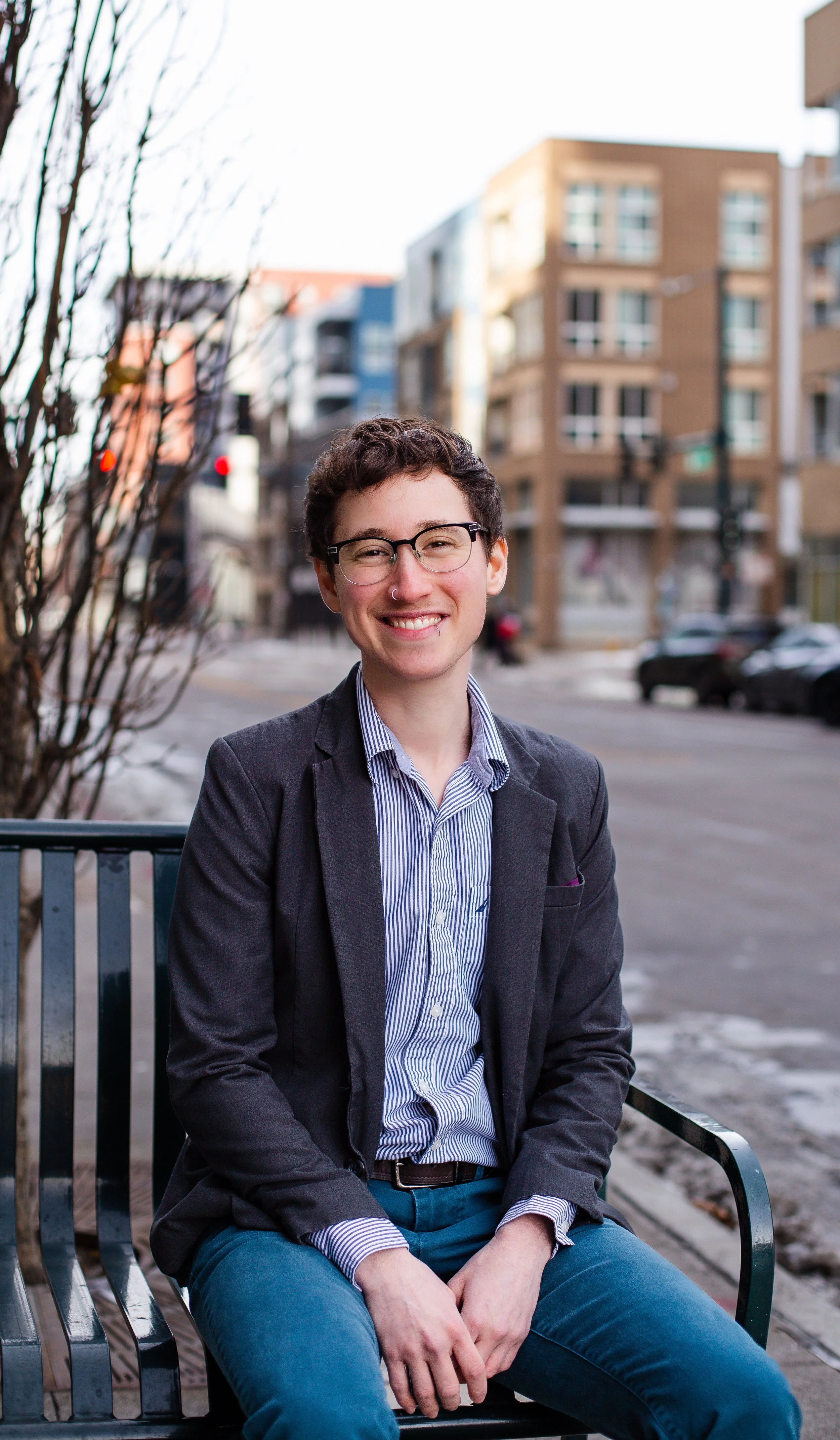Who am I?
Me as a person (like an actual human outside of the therapy office):
I moved to Colorado in 2019 to escape the Florida heat and humidity. Since, I’m thrilled to have put down roots here and am an avid snowboarder and hiker. I love to play the guitar, eat Thai food, and am currently enjoying a chai latte and blueberry muffin in a coffeehouse while creating this website.
Professional background:
I graduated with my Bachelor’s degree in Psychology, with a certificate in developmental disabilities from The Florida State University. Following this, I worked my way up in a nonprofit focused on the needs of D/deaf and hard-of-hearing folks in South Florida, eventually directing a program for D/deaf and hard-of-hearing older adults. Following that, I spent several years as a child protection caseworker across multiple county’s sexual abuse intervention teams. I became frustrated with system and clinical limitations on treatment for both victims and perpetrators of abuse and decided that I wanted to be a part of the clinical world to make the difference that I wanted to see. So, I sought out my Masters in Social Work (MSW) degree from Colorado State University. Whilst in school, I was a clinical therapist intern with the Mental Health Center of Denver’s D/deaf and hard-of-hearing department, prior to joining a group clinical practice. I graduated with an MSW and a certificate in behavioral health, completed my training in EMDR, in addition to an advanced certificate in complex trauma and dissociation (100 program hrs) through the International Society for the Study of Trauma and Dissociation (ISSTD). I continue to work with Boulder County in outreach and resource coordination for caregivers and older adults, in addition to seeing clients in my clinical therapeutic private practice.
Why in the world do I sit down (or stand up- whatever’s your thing) with clients and delve into their deepest struggles?
Life is messy, terrifying, and incredible. I became a social worker because connecting with people in whatever season their life is in allows me to truly witness the human experience. Also- gosh the way our brains know how to adapt to impossible situations… how could I not be interested.
How could I possibly know what it’s like?
I’m transgender, culturally Jewish, and neurodivergent- being “typical” was never in the cards for me and I understand what it’s like to feel outcasted, but to then be able to fully embrace and live wholeheartedly.
I’ve also experienced complex trauma myself. For years I could not understand why the patterns kept repeating and why “talking to a shrink about my problems” was not helping. Once I found EMDR, my life changed and I began to live instead of survive.
Things to know about my communication style:
I’m straightforward, no BS, and use a curse word or two on occasion. I’m empathic and non-judgemental- I believe there is a very good reason parts have been doing what they are doing (even if it’s caused difficulties at times). They’ve been trying their darnedest and deserve utmost compassion, curiosity, and care as we work to re-orient to present day concerns and safety. It’s a rare session when laughing doesn’t happen because even in the depths of hell, I find it’s helpful to find the bits of humor.
Why I work with trauma:
There is hope. Complex trauma, attachment insecurities, anxiety, depression, multiplicity, suicidality…etc. All of these can heal. That doesn’t mean that the terrible things that happened can be reversed because, well, I’m not a magician, nor time traveler (although that would be great). However, we can re-orient stuck parts who are still living and reliving all of these memories underneath the surface, the negative beliefs about the Self that come with them, and the responses that are attempting to be protective, but may also need some re-orienting. It might feel like this is how you’ve always felt and how you always will feel because we cannot take away what happened, but I can tell you from experience personally and professionally that it is very possible to move forward. Let’s give it a go to let go.



